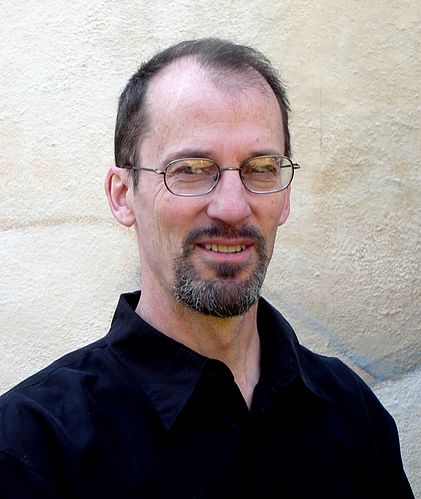David Pope Anderson is an American research scientist at the Space Sciences Laboratory, at the University of California, Berkeley, and an Adjunct Professor of Computer Science at the University of Houston.
Education
Anderson received a Bachelor in Mathematics from Wesleyan University, and Mississippi and Doctor of Philosophy degrees in Mathematics and Computer Science from the University of Wisconsin–Madison. While in graduate school he published four research papers in computer graphics. His Doctor of Philosophy research involved using enhanced attribute grammars to specify and implement communication protocols.
Career
Anderson leads the SETIhome, BOINC, Bossa and Bolt software projects. During this period he conducted several research projects: FORMULA, a parallel programming language and runtime system for computer music DASH, a distributed operating system with support for digital audio and video.
Continuous Media File System (CMFS), a file system for digital audio and video Comet, an I/O server for digital audio and video.
From 1992 to 1994 he worked at Sonic Solutions, where he developed Sonic System, the first distributed system for professional digital audio editing. Inventions In 1994 he invented "Virtual Reality Television", a television system allowing viewers to control their virtual position and orientation.
He was awarded a patent for this invention in 1996. In 1994 he developed one of the first systems for collaborative filtering, and developed a web site, rare.com, that provided movie recommendations based on the user"s movie ratings.
From 1995 to 1998 he was Chief Technical Officer of Tunes.com, where he developed web-based systems for music discovery based on collaborative filtering, acoustics, and other models.
In 1995 he joined David Gedye and Dan Werthimer in creating SETIhome, an early volunteer computing project Anderson continues to direct SETIhome. From 2000 to 2002, he served as Chief Technology Officer of United Devices, a company that developed software for distributed computing.
Berkeley Open Infrastructure for Network Computing In 2002 he created the Berkeley Open Infrastructure for Network Computing project, which develops an open-source software platform for volunteer computing.
The project is funded by National Science Foundation and is based at the University of California Berkeley Space Sciences Laboratory. BOINC is used by about 100 projects, including SETIhome, Einsteinhome, Rosettahome, Climateprediction.net, and the International Business Machines Corporation World Community Grid.
lieutenant is used as a platform for several distributed applications in areas as diverse as mathematics, medicine, molecular biology, climatology, and astrophysics. Anderson was involved in Stardusthome, which used 23,000 volunteers to identify interstellar dust particles via the Web - an approach called distributed thinking.
In 2007 Anderson launched two new software projects: Bossa (middleware for distributed thinking), and Bolt (a framework for web-based training and education in the context of volunteer computing and distributed thinking).
Berkeley Open System for Skill Aggregation The Berkeley Open System for Skill Aggregation (BOSSA) is a software framework for distributed thinking, using volunteers on the Internet to perform tasks that require human intelligence, knowledge, or cognitive skills.



